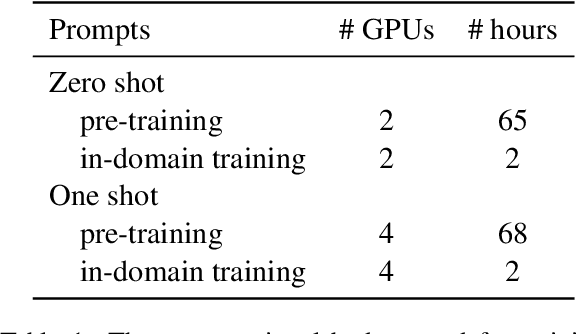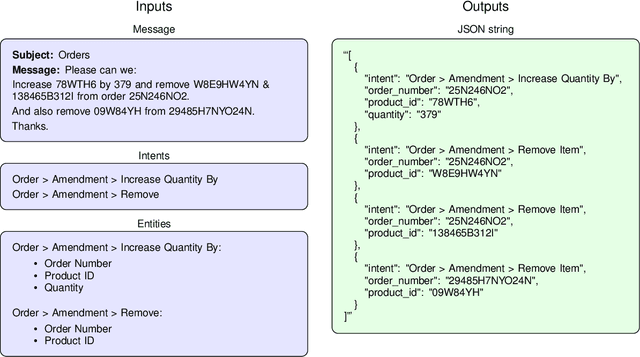Edward Challis
Generalized Multiple Intent Conditioned Slot Filling
May 18, 2023



Abstract:Natural language understanding includes the tasks of intent detection (identifying a user's objectives) and slot filling (extracting the entities relevant to those objectives). Prior slot filling methods assume that each intent type cannot occur more than once within a message, however this is often not a valid assumption for real-world settings. In this work, we generalize slot filling by removing the constraint of unique intents in a message. We cast this as a JSON generation task and approach it using a language model. We create a pre-training dataset by combining DBpedia and existing slot filling datasets that we convert for JSON generation. We also generate an in-domain dataset using GPT-3. We train T5 models for this task (with and without exemplars in the prompt) and find that both training datasets improve performance, and that the model is able to generalize to intent types not seen during training.
 Add to Chrome
Add to Chrome Add to Firefox
Add to Firefox Add to Edge
Add to Edge